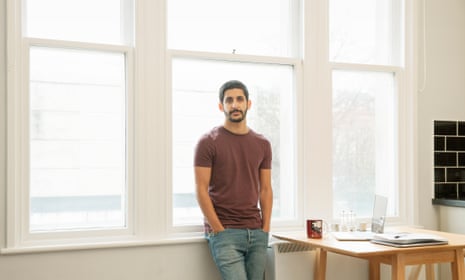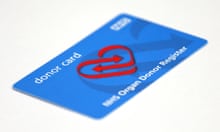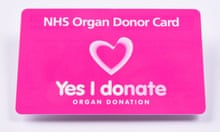My dad’s cancer diagnosis didn’t come completely out of the blue – years before, he’d been given a blood transfusion that hadn’t been properly tested and contracted hepatitis C. The virus caused cirrhosis of the liver and we’d always known there was a significant risk this could lead to further complications. All the same, we were still shaken when we learned in late 2014 he had developed hepatic cancer.
My older brother, Jared, had been to consultations with Dad, and it was he who suggested donating part of his liver. Many people don’t realise that, unlike other organs, the liver can regenerate, growing back to full size within six months. Dad was grateful, but very cautious. He’s a doctor, and although he’s aware of the success rate of these operations, it was hard for him to accept such an offer from his children. When one adult donates to another, they have to give a larger portion of their liver than if donating to a child, so the risks are greater. But Dad has a rare blood group, and the chances of a cadaver donation were remote. Jared and I had tests and found that, against all odds, we were both compatible. After that, we didn’t give him any choice – we weren’t going to take no for an answer.
This led to something of a standoff, each of us adamant that he should be the donor. At the time, though, my brother was awaiting the results of a PhD, so he didn’t have any commitments, whereas I was in the middle of university exams. Jared also felt a responsibility to protect me – he was 25, I was 21 – and we both wanted to be considered before our sister, who also put herself forward. To get things moving quickly, we agreed Jared could go for it first.
It was found that 66% of Jared’s liver would be needed. The amount depends partly on where veins and arteries connect to the liver, but at between 60% and 70%, the risk to the donor increases sharply; the surgeons were reluctant to consider him. I stepped forward straight away. I had the tests and discovered they’d only have to take 56% of my liver.
Having spent months working towards the operation, Jared felt deflated when the plans suddenly changed, and even a little guilty – he apologised to me for passing on the responsibility, which was ridiculous. But he was a tremendous support and able to talk me through each step. I had an MRI scan, then a CT scan where dye was administered to highlight specific blood vessels. There were psychological assessments, too, but the stage I was least looking forward to was the biopsy, where a liver sample was taken via a tube threaded into my jugular vein. But thanks to the anaesthetic on my skin, I barely felt a thing; it was only that evening that the pain and stiffness in my neck started to bother me.
Once I’d been cleared to have the operation, a date came through very quickly – just a fortnight later. That gave me time to sit a couple of exams and postpone the others, but no time to dwell, which suited me fine. Dad and I arrived at the hospital the night before. I remember the very nervous conversation we had, with him thanking me over and over – we were quietly both afraid this might be the last time we saw one another. I was taken to theatre the next morning at six. The operation worked as a kind of relay; there was no point operating on Dad until I’d been opened up and my liver properly checked.
I came round in a panic. My brother, sister and mother were all there – my parents divorced 10 years ago, but Mum was supportive throughout. It would be a few days before I saw Dad – his recovery was much slower. It was an emotional reunion. Dad hugged me tightly and told me what an amazing thing I’d done for him. I was just glad to have been able to do something. I feel for those who are powerless and have to watch their loved ones deteriorating. I’d gladly donate again in future – a kidney, say – whether I knew the recipient or not.
Six months on, other than the scar on my chest, I’m almost back to my old self and planning an assault on Kilimanjaro to raise money for the British Liver Trust. Dad still has hepatitis, but with his healthy new liver we’ve been told he should live at least another five years – we’re confident he’ll last a lot longer.
As told to Chris Broughton.
Do you have an experience to share? Email experience@theguardian.com.









Comments (…)
Sign in or create your Guardian account to join the discussion